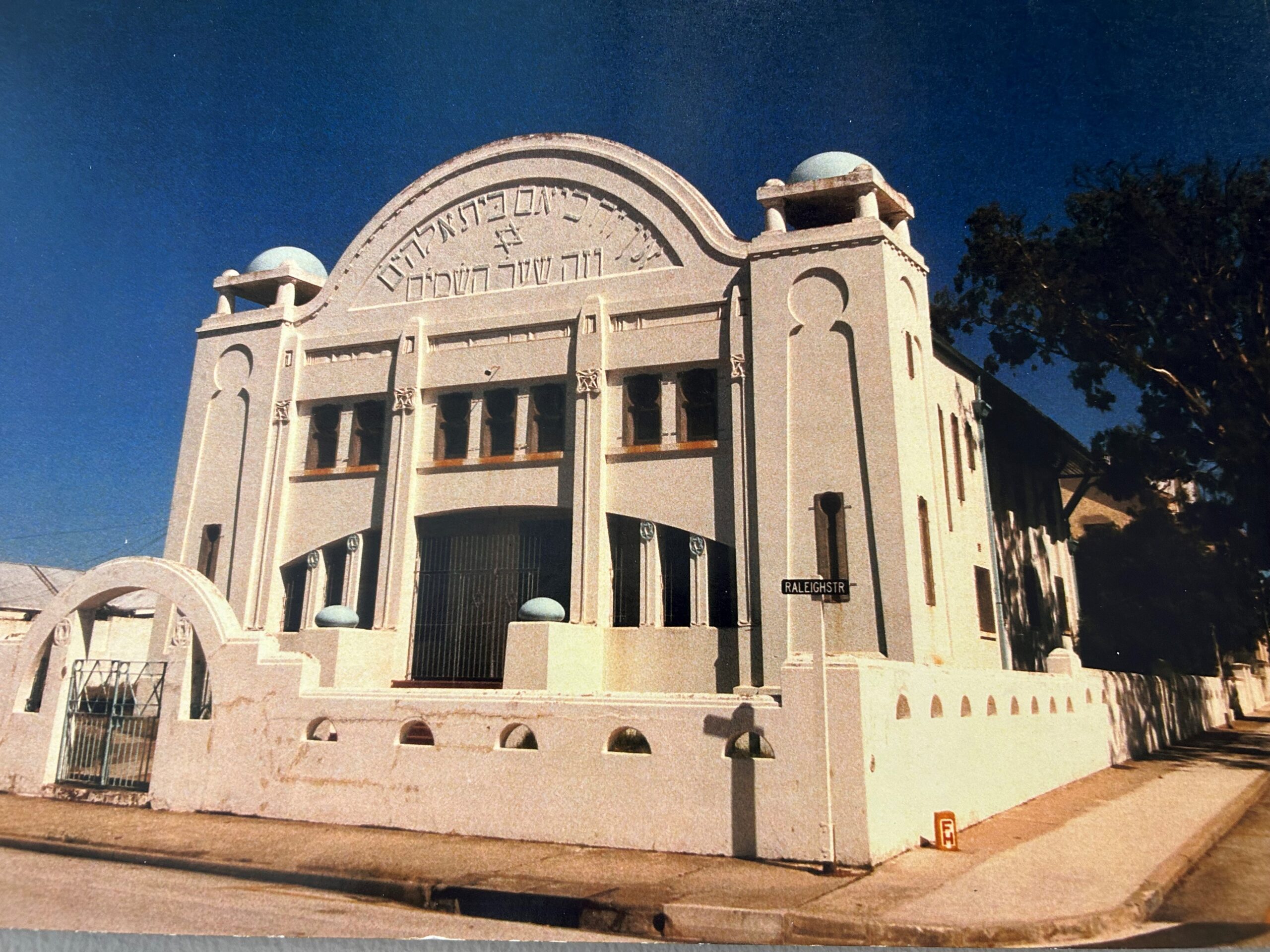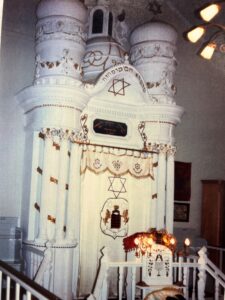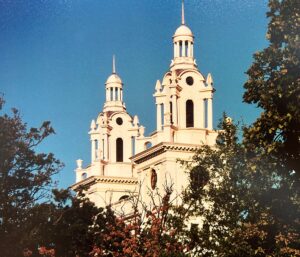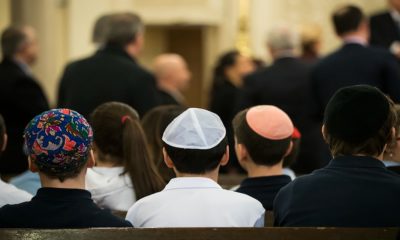
Lifestyle/Community

Vital and beautiful – SA shuls photographed for posterity
Synagogues have particular importance for chazzan and photographer Ivor Lichterman. Lichterman followed in the footsteps of his father, chazzan Jakub Lichterman. Having started his cantorial career in Cape Town, he now lives in the United States. The SA Jewish Report caught up with him as his photographic exhibition opened this week at the South African Jewish Museum in Cape Town.
What was your childhood like in South Africa?
My brother and I had the most loving and happy childhood. Both our parents survived the Warsaw Ghetto and numerous concentration camps between them, and they raised us in a home imbued with love, Yiddishkeit, music, and community service.
What drew you to become a cantor?
We were both drawn to be cantors since our father was one, with a legendary reputation throughout South Africa. G-d gave us both vocal and musical gifts, which we decided to devote to keeping his legacy alive.
What made you emigrate in 1976?
I entered Yeshiva University in New York, having graduated BA Honours cum laude in Judaic Studies from the University of Cape Town, and wanted to further my studies. My original intent was to return to South Africa, but after the riots of 1976 and having married an American girl – my beautiful wife, Jan – there was no possibility of returning other than for visits.
What drew you to photography, and what do you enjoy photographing most?
I was always a visual person. I loved architecture, especially synagogues, and decided soon after I emigrated to try to document as many synagogues in South Africa as possible out of fear that they might not be there in the future. Not only did I want to photograph them, I loved to see them, especially the ones I had only heard about.
Describe the process of documenting (photographing) the shuls.
It was based on feasibility and accessibility. Hence it began in and around Cape Town, where I was born and raised. But on each return home to visit my parents after I emigrated, I went to great expense and devoted a huge amount of time to visit and photograph as many as possible.
On one visit back, I flew from Johannesburg to East London, Port Elizabeth, and then Kimberley. I would rent cars in each city, try to reach someone by phone who had keys for the shul, or an active office. If not, I’d usually find a caretaker on the premises, give him a nice few rand, and have him open up and even turn on the lights. In those days, accessing the buildings was easier, they weren’t gated, and it was easy to poke around.
On another visit, I drove all round the Witwatersrand, having heard about the beautiful synagogues, visiting Benoni where my father served from 1947 to 1950 as chazzan, Boksburg, Brakpan, Springs, and Germiston. Another time, I visited Krugersdorp, Vereeniging, Roodepoort, and so on. I was brave, daring, and some would say crazy, but also vastly determined.


Which shuls were the most important to you?
It’s hard to pick some out above others. They are all important, and their documentation critical as a magnificent part of a significant South African Jewish history that’s diminishing rapidly.
Which were your favourites?
As an older building, I love Kimberley’s design, reminiscent of a castle. As a modern building, I love Bloemfontein’s. Its interior is beautifully coloured, and it’s filled with light from multiple windows. It has motifs of five of the books of the Torah, and seven for the creation and branches of the menorah.
As a cantor, I’m aware what acoustical designs work well in large buildings without amplification, as is the case in most Orthodox synagogues. The large size of the choir room above the ark is particularly conducive to good natural acoustics. Other beauties I photographed include Germiston, Brakpan, Springs, even the small Strand Shul near Cape Town was beautiful and unique.
You obviously haven’t lived here for a long time, but what does South Africa mean to you?
I loved growing up in South Africa. In spite of the racism and discrimination some population groups suffered, we Jews were fortunate. For example, I served a full year in the army. I can honestly say it was a positive and maturing experience. I suffered no antisemitism whatsoever, had kosher food all the time, was off for Shabbat observance, and even put on tefillin in the presence of other soldiers. So, yes, I’d say we Jews did well in this country at a time of discrimination for some groups.
How often do you come back these days? What do you do when you do come back?
I returned once a year to visit my parents. Dad passed 37 years ago, and then I considered it vital to visit mom as frequently as possible since she was left with no-one except a few distant relatives but many friends.
What does this exhibition mean to you?
The exhibit was launched to coincide with my mom’s consecration, on the same day. Although she was immersed in many aspects of the community, it all began with the synagogue, first Benoni, then Vredehoek, where she was active in the ladies guild right from the start. The synagogue was another home for both my parents, a vital lifeline.
What do you want your audience to get from this exhibition?
On a personal note, I want them to understand how deeply we appreciate what our parents provided for us, their devotion, sacrifice, and love for us and for this country’s Jewish community. South Africa’s Jewish community gave them abundant love and a safe haven after everything they lost and the horror of their war years.
As far as the photographs are concerned, I hope the audience appreciates the magnificent history of our community and its synagogues, and my fanatical endeavours to document it for posterity, as a labour of love.









Megan Kotzen
June 29, 2023 at 7:47 pm
Please provide a contact e mail address or phone number for Ivor Liichterman. I would like to contact him in person to invite him to come photograph the past synagogue in my hometown of Bethal, Mpumalanga.
Regards,
Megan Kotzen
0826960067
megankotzen@gmail.com
Adri Slabber
December 28, 2023 at 5:11 am
Good evening Ivor Liichterman.
If I may mention it. My shull in the Strand will be up for sale within the next week.
Can you provide me of any positive input.
Regards.
Adri